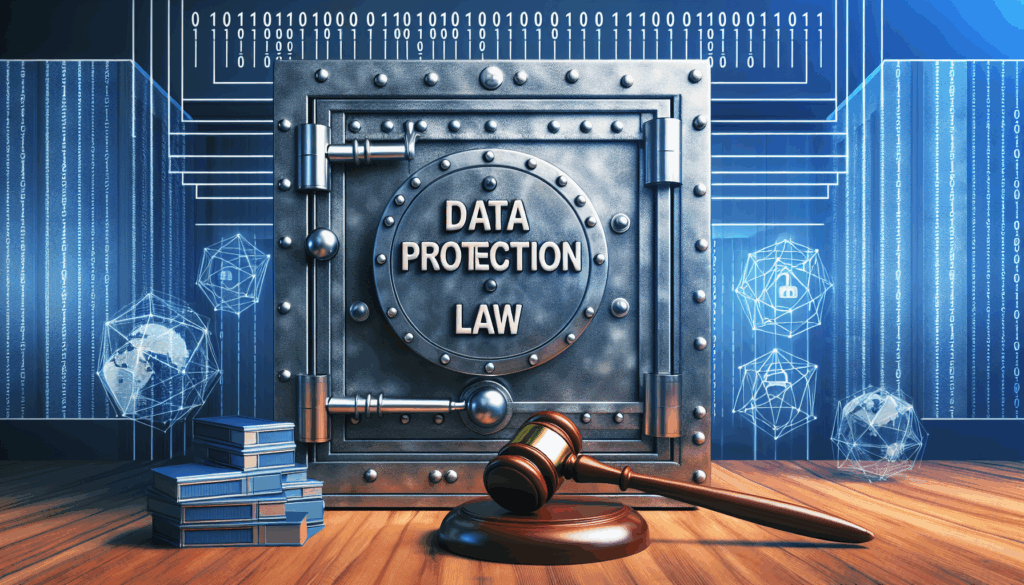Your cart is currently empty!

Understanding Data Protection Under GDPR
In today’s digital era, data protection has become a cornerstone of privacy and security for individuals and organizations alike. The General Data Protection Regulation (GDPR) is one of the most comprehensive legal frameworks established to safeguard personal data and ensure its ethical use. Enacted by the European Union (EU) in May 2018, GDPR has set a global standard for data protection and has implications far beyond Europe. Below, we delve into the key aspects of GDPR and its role in data protection.
What is GDPR?
The GDPR is a legal framework designed to give individuals greater control over their personal data and establish clear guidelines for organizations in how they collect, use, store, and process such data. It applies to any organization operating within the EU or targeting individuals in the EU, regardless of where the organization is based. This extraterritorial scope makes GDPR relevant for businesses and institutions worldwide.
Key Principles of GDPR
The General Data Protection Regulation (GDPR) is built upon seven fundamental principles that serve as the foundation for effective data protection practices and ensure the safeguarding of personal information. These principles are designed to uphold transparency, accountability, and fairness in how organizations handle data. They emphasize the importance of lawful processing, data minimization, and the rights of individuals, ensuring that personal data is treated with care and respect. By adhering to these principles, organizations can create robust data protection frameworks that align with legal requirements and foster trust among users and stakeholders.
- Lawfulness, Fairness, and Transparency: Personal data must be processed lawfully, fairly, and in a transparent manner.
- Purpose Limitation: Data should only be collected for specified, explicit, and legitimate purposes.
- Data Minimization: Organizations should collect only the data that is necessary for the intended purpose.
- Accuracy: Personal data must be accurate and kept up to date.
- Storage Limitation: Data should not be kept longer than necessary for its intended purpose.
- Integrity and Confidentiality: Personal data must be handled securely to protect against unauthorized access, loss, or damage.
- Accountability: Organizations must take responsibility for ensuring compliance with GDPR and be able to demonstrate it.
Individual Rights Under GDPR
One of GDPR’s primary objectives is to empower individuals with control over their personal data. To achieve this, it grants the following rights:
- Right to Access: Individuals can request access to their personal data and know how it is being used.
- Right to Rectification: Individuals can request corrections to inaccurate or incomplete data.
- Right to Erasure (Right to be Forgotten): Individuals can request the deletion of their data under certain circumstances.
- Right to Restrict Processing: Individuals can request that their data only be used for specific purposes.
- Right to Data Portability: Individuals can request their data in a structured, commonly used format to transfer it to another organization.
- Right to Object: Individuals can object to the processing of their data for certain purposes, such as direct marketing.
- Rights Related to Automated Decision-Making: Individuals are protected from decisions made solely by automated processes that significantly affect them.
Responsibilities for Organizations
Under GDPR, organizations carry extensive responsibilities to guarantee compliance and safeguard personal data. These obligations involve implementing robust data protection measures, conducting regular audits to assess compliance, and establishing clear policies for handling sensitive information. Additionally, organizations must ensure transparency in how data is collected, processed, and stored, providing individuals with clear information about their rights and the purposes of data usage. They are required to appoint a Data Protection Officer (DPO) in certain cases to oversee compliance efforts and act as a point of contact for data subjects. Furthermore, organizations must have procedures in place to promptly address data breaches and report them to relevant authorities within the stipulated timeframe. By prioritizing these responsibilities, organizations can build trust and demonstrate their commitment to protecting individuals’ privacy rights.
- Obtaining Consent: Organizations must obtain clear and explicit consent before processing personal data, except in specific circumstances where another lawful basis applies.
- Data Protection by Design and Default: Privacy considerations must be integrated into the design of systems and processes.
- Appointment of a Data Protection Officer (DPO): Certain organizations are required to appoint a DPO to oversee compliance with GDPR.
- Reporting Data Breaches: Organizations must report data breaches to the relevant supervisory authority within 72 hours and, in some cases, to the affected individuals.
- Maintaining Records: Organizations must keep detailed records of data processing activities.
Penalties for Non-Compliance
One of the most significant aspects of the GDPR is its rigorous enforcement and the imposition of substantial penalties for any instances of non-compliance. Companies or organizations that do not meet the regulation’s standards can be subjected to fines reaching as high as €20 million or 4% of their total global annual revenue, depending on which amount is greater. These severe financial repercussions act as a powerful motivator for businesses to place a high priority on data protection measures and ensure strict adherence to all GDPR regulations and requirements.
The Global Impact of GDPR
Although the GDPR is primarily an EU regulation, its impact has been deeply felt on a global scale. Numerous countries and organizations beyond the borders of the EU have either implemented comparable data protection laws or revised their existing practices to better align with the standards set by GDPR. This widespread adoption underscores the increasing awareness and acknowledgment of the critical importance of safeguarding data privacy in today’s interconnected and digital-driven era.
Conclusion
The General Data Protection Regulation (GDPR) has fundamentally transformed the landscape of data protection by placing individuals’ rights and privacy at the forefront of its framework while compelling organizations to take greater responsibility for how they manage and safeguard personal information. By complying with the stringent principles and obligations outlined in the GDPR, businesses not only mitigate the risk of incurring significant financial penalties but also strengthen their reputation by demonstrating a commitment to ethical data practices. This, in turn, helps to establish deeper trust and more transparent connections with their customers. In an era where data continues to play an increasingly pivotal role across all aspects of modern life, the GDPR serves as an indispensable guideline to ensure that the principles of privacy, accountability, and security remain central to how information is handled and protected.

Leave a Reply